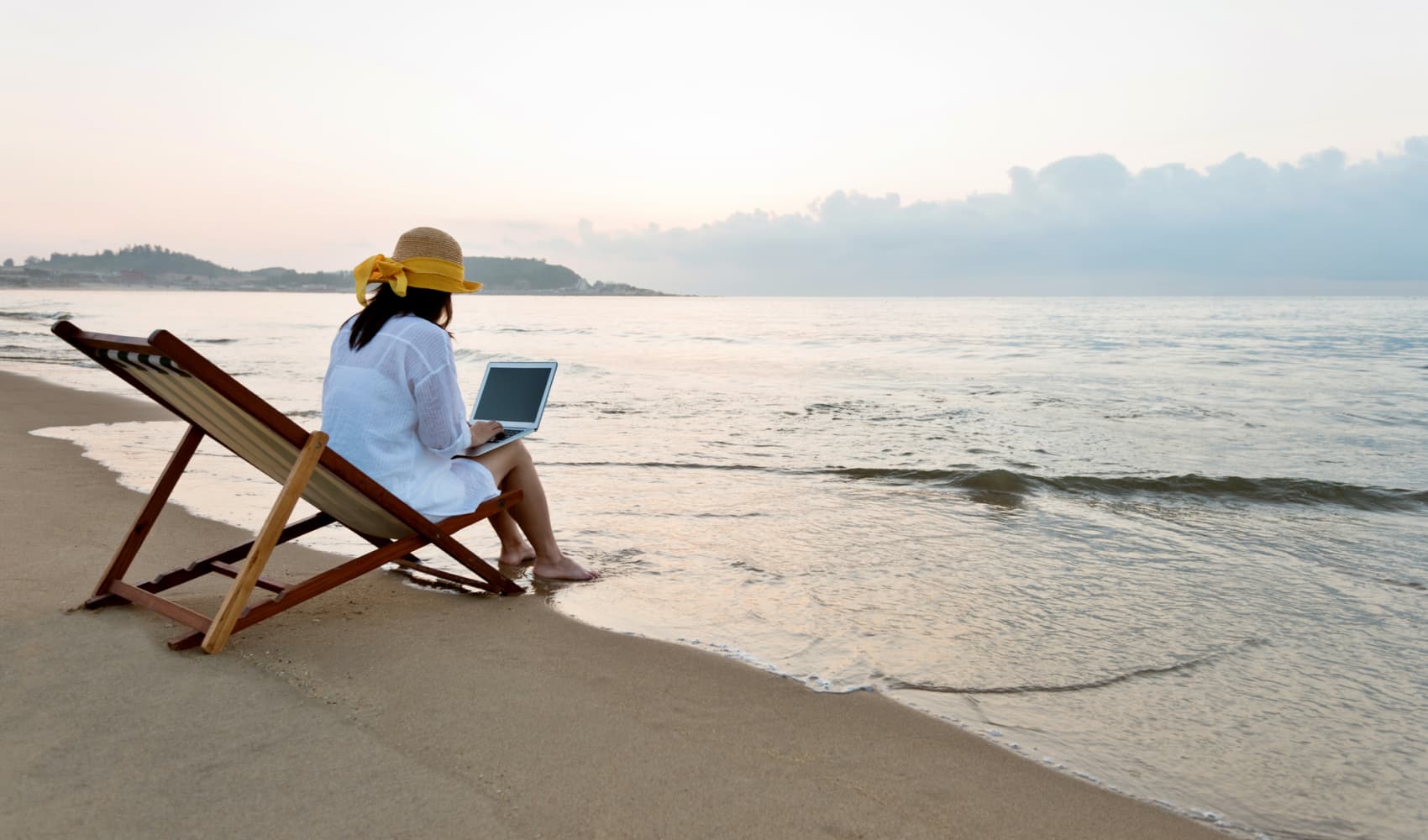Life-changing experiences, unforgettable memories and beautiful pictures — these are things that come to mind when people think of a year-long family trip.
But there are also blunders behind the adventures, said Margaret Bensfield Sullivan, recalling the year she spent abroad with her husband and two kids.
From encountering piranhas in Brazil to getting trapped in an airport in Mozambique, the Sullivans endured many unexpected challenges during their trip to 29 countries.
Unexpected beginnings
We've got the news you need to know to start your day. Sign up for the First & 4Most morning newsletter — delivered to your inbox daily. Sign up here.
"I think people were very surprised that we were doing this because we did not fit the profile of a family that you picture when you think of a family that would do this," Sullivan said. "Our lives were good. We were settled, coming along — two great kids, nice careers, apartment, a dog."

But that changed after Sullivan, who previously worked as a partner at a brand marketing agency in New York, came back from a work trip in Tanzania in 2017, which she described as an "eye-opening event."
Money Report
The trip made her realize the world was big, and her life operated in a such a small fraction of it.
"So I had to ask myself: 'What else am I missing because I'm busy at work or consumed with the daily tasks of my life?'" she said. "And I realized our family kind of needed a shake-up. We needed to get out there and see what was going on."
Plus, Sullivan said she wanted to spend time with her family while she still had the chance.
"I worry that I will wake up one day, and ask myself: 'Where did the time go?'" she said. "Taking a year off like this was a way to future-proof against regret."
The planning
Before they left, Sullivan and her husband Teddy, an entrepreneur, spent months preparing for their year abroad. She said they had both reached natural stopping points in their careers, so they decided it was a good time to take a year off.

"The best part: canceling all bills. Not a single bill and we hit the road … our home was now our suitcase," she said.
Budgeting for a year away was a big consideration, she said.
"What kept us sane was — it was finite," she said. "It had an end date, and that was very reassuring."
Sullivan said she and her husband decided on a warm weather itinerary, or to "follow the sun," which later became part of the title of a book she published about their year abroad.
"We bought a giant white wall map, put it on the wall of our apartment. And we would spend every day just staring at it dreaming about the places we wanted to go," she said.
In the end, the Sullivans hired travel agents to help with planning.
"This was not a 'winging-it adventure'," she said, adding that when they left they had three months of plans in place.
In January 2019, the Sullivans left New York, journeying first to South America, then to Africa, the Middle East, Europe, and finally to Asia and Oceania before heading home.
The mishaps
During the trip, the Sullivans endured a "terrible" stomach bug in Beijing, altitude sickness in Peru and a lice infestation in Berlin.

"We had packed every conceivable medication, and it never occurred to me that we would encounter lice," she said. "In New York, there are all kinds of services where people would come and eliminate these lice from your children. That did not exist in Germany."
There was also what's now known as "The Piranha Story" in the Sullivan household, which happened while fishing in the Amazon rainforest.
Sullivan, who is afraid of fish, said someone threw a live piranha onto her lap in their boat.
"I screamed bloody murder, lurched backward, crashed into the floor of the boat, taking my daughter back with me, all while the live piranha flopped around between us. It was the most absurd thing that has ever happened to me," she said.
"We wound up eating the piranha that night, and its jaws are framed in our home now."
The mistakes
Besides the mishaps, Sullivan said her family made their fair share of mistakes too, including following a travel agent's advice to visit an orphanage in Vietnam.
"We immediately realized we shouldn't be there. We felt terrible about it," she said. "I cannot state strongly enough that this kind of tourist destination is completely irresponsible, and no one should visit an orphanage."

In Cambodia, the Sullivans encountered a sign near the airport that stated: "Children are not a tourist destination. Do not visit an orphanage."
"Wealthy tourists come into a place and feel like they want to contribute or do good. And so, they ... hand out school supplies at a school and that's not helpful for a community," she added. "It is harmful and potentially exploitative."
"Visiting a country with deference and respect and curiosity, the same way you would visit France or Japan, is just the way to go," she said.
The misguided assumptions
During their time abroad, the Sullivans also reflected on the gap between their expectations and the reality of their year-long journey.
"We assumed we would have tons of free time," she recalled. "I thought: 'this was it, this was my big year' to sit back and do all those creative projects I wanted to do, and [watch] all the shows I meant to watch."
"But we had two small children with us. There was no free time," she said, of her kids, who were four and six years old at the time.
The Sullivans reluctantly left home with only carry-on luggage, but were surprised to return home with their bags only half full.
"You just don't need as much as you think," she mused.
The couple also found themselves surprised by their energy levels during their extensive travels.
"We were in our rooms asleep by 8:30, basically every night. Turns out, rest and the lack of stress can do wonders for your energy," she noted.
As they ventured into unfamiliar territories, Sullivan said the family division between adults and children disappeared.
"My husband and I were bumbling, clueless, didn't know the language, vulnerable ... we didn't know everything. We quickly shed that invincible parent facade," she admitted. "At the same time, our children are proving themselves to be very funny, very brave, and very curious."
More good than bad
Amid all the challenges, Sullivan revealed that the biggest lesson for the family was learning how to visit places without bias.
"We just learned to go to a place with a blank slate," she said. "Take it in, just ask questions because we all have assumptions about other parts of the world."
After journeying to six continents, Sullivan said she learned people are just trying to help each other through life.
"Around the world, the common language truly was kindness," she said. "We came home from that year thinking there were more good people in the world than bad, that most people just want to help."
When asked if she had any advice for others, she said pick a date and stick with it.
"Once it's on the calendar, you can work backwards," she said. "It makes it more real."






